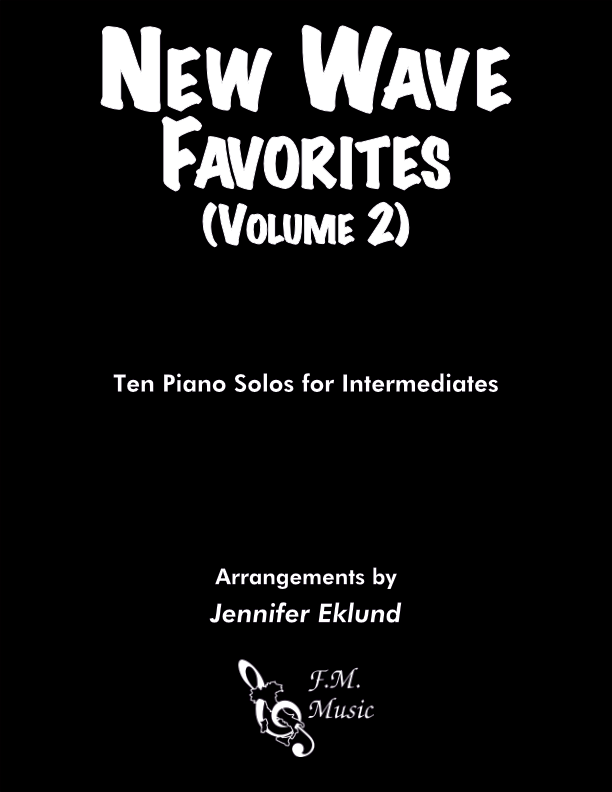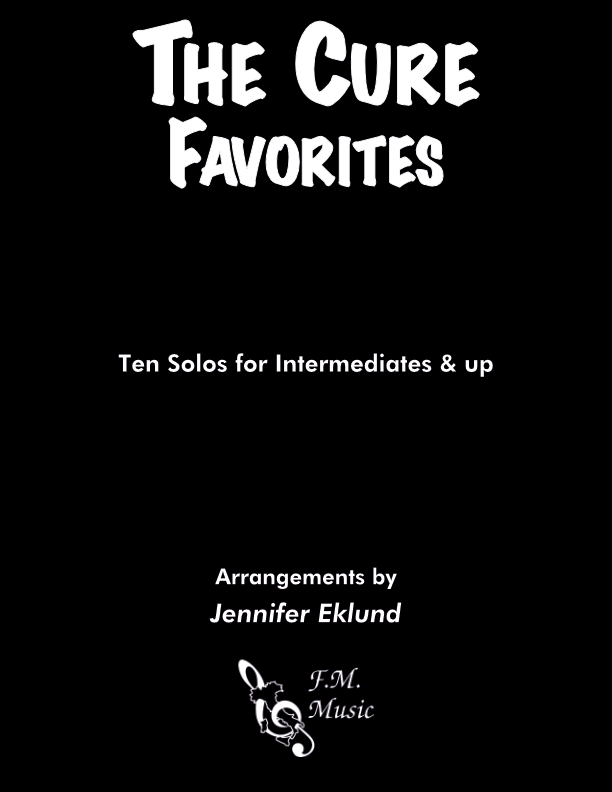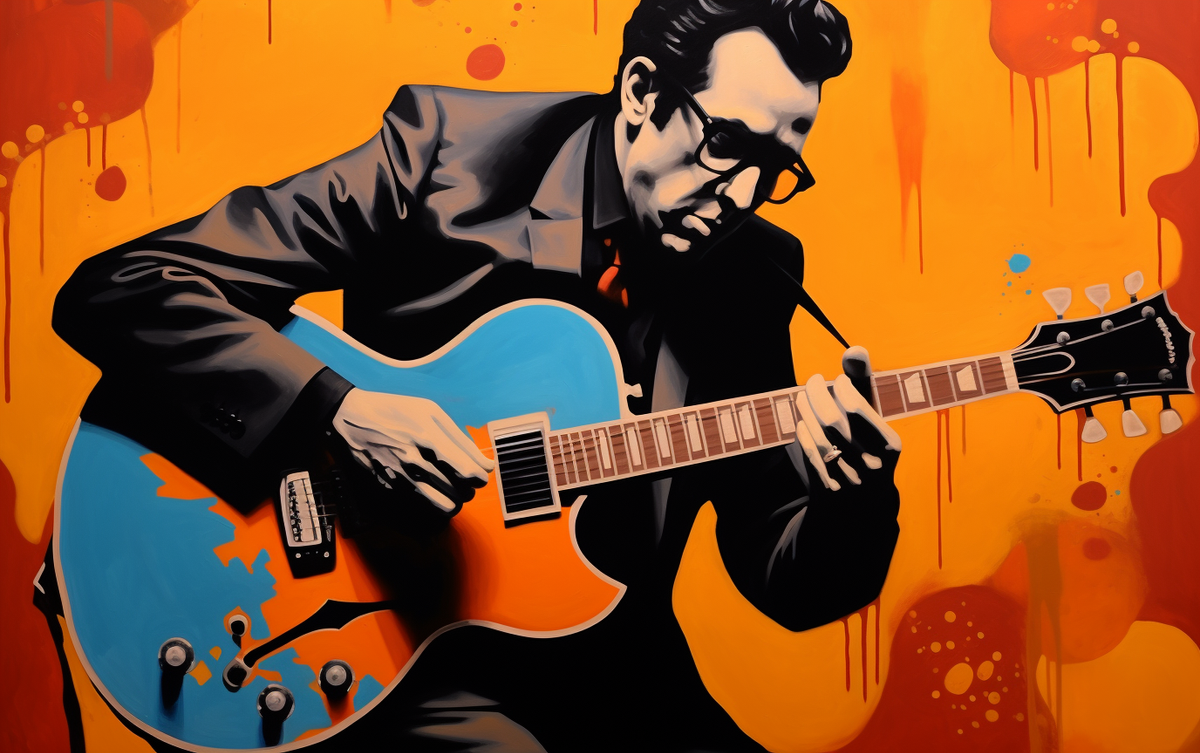🎹 What is New Wave music?
New Wave music spanned the late 1970s through the 1980s and emerged as a more melodic and light-hearted extension of punk culture. It embraced various pop-oriented styles and prominently featured the use of synthesizers. Initially a catch-all term for post-punk musical expressions, New Wave later evolved into a broader umbrella encompassing power pop, synth-pop, alternative dance, and milder forms of punk. It also can be perceived as a more accessible counterpart to post-punk.
Characterized by its distinctive attributes, New Wave music exhibited a playful and humorous pop sensibility, characterized by angular guitar riffs and unconventional rhythms, often enhanced by electronic elements, especially the use of synthesizers. A visually appealing fashion sense and distinctive music videos were crucial to the genre’s success. The movement’s roots lie in Britain, where British New Wave artists initially gained prominence and subsequently captured American audiences through platforms like MTV. The genre is sometimes referred to as the second British invasion.
New Wave’s initial peak occurred from the late 1970s to the early 1980s, supported by major musicians and a proliferation of one-hit wonders. MTV’s launch in 1981 played a pivotal role in amplifying the genre’s popularity by heavily featuring new wave acts. While New Wave experienced a decline in the mid-1980s due to the ascent of other genres, it has resurged intermittently since the 1990s, fueled by nostalgia for its influences. Additionally, new wave’s musical characteristics, including choppy rhythms, quirky pop sensibilities, and electronic incorporation, continue to have a lasting influence on subsequent generations of artists.
🎶 New Wave Favorites: Volume 2 Songbook
The following songs are included in the New Wave Favorites: Volume 2 songbook. These are all available as separate singles, but you get the most value by purchasing the whole collection. All of these arrangements are appropriate for intermediates and up.
- 867-5309/Jenny (Tommy Tutone)
- Boys Don’t Cry (The Cure)
- Brass in Pocket (The Pretenders)
- Call Me (Blondie)
- Dancing with Myself (Billy Idol)
- Everybody Have Fun Tonight (Wang Chung)
- Head Over Heels (The Go-Go’s)
- People Are People (Depeche Mode)
- Venus (Intermediate Piano)
- Voices Carry (‘Til Tuesday)
🎹 Watch a performance of the entire songbook:
⭐ Featured Favorites
There’s so many great videos from this era that it’s hard to narrow down the best ones, but these personal favorites from New Wave Favorites: Volume 2! made the cut!
“Brass in Pocket” (The Pretenders) (1979)
Chrissie Hyndes’s voice is just so unmistakable…🤌✨
“Brass in Pocket” is a song by the British-American rock band The Pretenders, released in 1979 as a single from their self-titled debut album. The song is one of The Pretenders’ most well-known and beloved tracks, recognized for its catchy melody, confident vocals, and blending of rock and New Wave elements.
“Brass in Pocket” was released in the UK in 1979 and quickly became a hit, reaching the number 1 spot on the UK Singles Chart. In the United States, it peaked at number 14 on the Billboard Hot 100. The song’s commercial success helped introduce The Pretenders to a wide audience and established them as a notable force in the music scene.
The song is characterized by its distinctive guitar riff, danceable rhythm, and Chrissie Hynde’s charismatic and sassy vocals. “Brass in Pocket” blends rock, pop, and new wave influences, creating a sound that is both edgy and accessible. The song features a memorable melody and a catchy chorus that showcases Hynde’s unique vocal delivery.
The lyrics of “Brass in Pocket” convey a sense of empowerment and confidence. The phrase “I’m special” is repeated throughout the song, emphasizing a strong self-assuredness. The lyrics also touch on themes of attraction and desire, with lines like “Gonna use my arms, gonna use my legs, gonna use my style, gonna use my side-step.” The combination of the lyrics and Hynde’s vocal performance adds to the song’s charismatic appeal.
“Call Me” (Blondie) (1980)
Let’s keep the girl-power going!
“Call Me” is a song by the American rock band Blondie, released in 1980 as the theme song for the soundtrack of the film “American Gigolo.” The song is one of Blondie’s biggest hits and is recognized for its catchy melody, energetic sound, and strong association with the era’s new wave and disco influences. It was released as a single in 1980 and quickly reached the number 1 spot on both the Billboard Hot 100 chart in the United States and the UK Singles Chart, making it the band’s second chart-topper in the US and their fourth in the UK.
The song was co-written by Debbie Harry, the lead vocalist of Blondie, along with Italian producer and composer Giorgio Moroder. Moroder is known for his pioneering work in electronic and disco music. His collaboration with Blondie resulted in a song that effectively combined the band’s rock and new wave sensibilities with Moroder’s disco-infused production style.
“Call Me” features a pulsating beat, driving bassline, and synthesizer-driven melodies, creating a danceable and infectious sound. The song’s energetic arrangement is complemented by Debbie Harry’s distinctive vocals, which convey both power and vulnerability. The blending of rock, new wave, and disco elements contributed to the song’s broad appeal across different musical genres.
“Call Me” is not only one of Blondie’s most successful songs but also one of the defining hits of the 1980s. Its fusion of different musical styles and its placement in the film “American Gigolo” contributed to its cultural impact. The song’s danceable beat and memorable chorus have made it a favorite on dance floors and radio stations for decades.
“Everybody Have Fun Tonight” (Wang Chung) (1986)
Are we having fun yet?
“Everybody Have Fun Tonight” is a song by the British new wave band Wang Chung, released in 1986 as a single from their album “Mosaic.” It reached the top 10 on the Billboard Hot 100 chart in the United States, as well as achieving significant chart positions in other countries. The song’s infectious melody and danceable rhythm contributed to its popularity.
The song features a blend of synth-pop, new wave, and dance influences, which were characteristic of the 1980s music scene. “Everybody Have Fun Tonight” is characterized by its bouncy and energetic sound, driven by a prominent synthesizer melody, catchy guitar riffs, and a pulsating rhythm. The song’s melody and chorus are instantly recognizable and contribute to its enduring appeal.
“Everybody Have Fun Tonight” has become synonymous with the 1980s pop culture and is often associated with the decade’s lively and carefree spirit. Its upbeat sound, memorable chorus, and playful lyrics have contributed to its status as a classic of the 1980s New Wave and pop scene.
“People Are People” (Depeche Mode) (1984)
“People Are People” is a song by the English electronic music band Depeche Mode, released in 1984 as a single from their album “Some Great Reward.” It reached the top 10 in several countries, including the United Kingdom, the United States, and Germany. The song’s popularity helped further establish Depeche Mode as a prominent band in the electronic and synth-pop genres.
The song features Depeche Mode’s signature electronic sound, characterized by synthesizers, drum machines, and industrial textures. “People Are People” is characterized by its driving rhythm, melodic hooks, and Martin Gore’s distinct vocals. The song’s arrangement showcases a blend of New Wave and pop influences, with an emphasis on accessible melodies and catchy hooks.
The lyrics of “People Are People” address themes of prejudice, discrimination, and the universal nature of human emotions. The chorus, with the line “People are people, so why should it be, you and I should get along so awfully,” emphasizes the idea that regardless of differences, people share common experiences and emotions. The song’s message promotes empathy and understanding among individuals.
“People Are People” resonated with audiences during the 1980s and remains relevant due to its themes of unity and acceptance. The song’s title and chorus have become a rallying cry for promoting tolerance and ending discrimination. Its thought-provoking lyrics and memorable melody have made it a favorite among Depeche Mode fans and music enthusiasts alike.
“Voices Carry” (‘Til Tuesday) (1985)
My personal favorite from this collection!
“Voices Carry” is a song by the American new wave band ‘Til Tuesday, released in 1985 as the lead single from their debut album of the same name. It quickly gained attention for its catchy sound and lead vocalist Aimee Mann’s distinct voice. The song reached the top 10 on the Billboard Hot 100 chart in the United States, marking a significant commercial success for the band.
The song features a blend of New Wave, synth-pop, and pop rock elements, which were characteristic of the 1980s music scene. “Voices Carry” is characterized by its driving rhythm, synthesizer hooks, and Mann’s emotive vocals. The song’s arrangement showcases a balance of electronic and organic instrumentation, giving it a dynamic and engaging sound.
The lyrics of “Voices Carry” revolve around themes of self-expression, identity, and the challenges of a strained romantic relationship. The song’s narrator expresses a desire to break free from societal expectations and the influence of others’ opinions. The chorus, with the line “Hush, hush, keep it down now, voices carry,” conveys a sense of secrecy and suppression, further emphasizing the emotional tension in the relationship.
The music video for “Voices Carry” played a significant role in the song’s success. The video features Aimee Mann in a tumultuous romantic relationship with an authoritative and controlling partner. The dramatic narrative of the video complements the song’s themes of individuality and self-expression. The memorable image of Mann’s transformation, from a submissive woman to one who stands up for herself, became a defining visual element of the song.



 - Intermediate/images/Cover--brass-INT-MN.png)
 - Easy/images/Cover--callme-EZ-MN.png)
 - Intermediate/images/Cover--callme-INT-MN.png)
 - Advanced/images/Cover--callme-ADV-MN.png)
 - Intermediate/images/Cover--wangchung-INT-MN.png)
 - Easy/images/Cover--people-EZ-MN.png)
 - Intermediate/images/Cover--people-INT-MN.png)
 - Advanced/images/Cover--people-ADV-MN.png)
 - Intermediate/images/Cover--voicescarry-INT-MN.png)
 - Intermediate/images/Cover--vacay-INT-MN.png)
 - Easy/images/Cover--luft-EZ-MN.png)
 - Easy/images/Cover--boysdontcry-EZ-MN.png)
 - Intermediate/images/Cover--jenny-INT-MN.png)
 - Intermediate Lyrical Version/images/Cover--neverendingstory-INT-LYR-MN.png)





Be the first to comment.